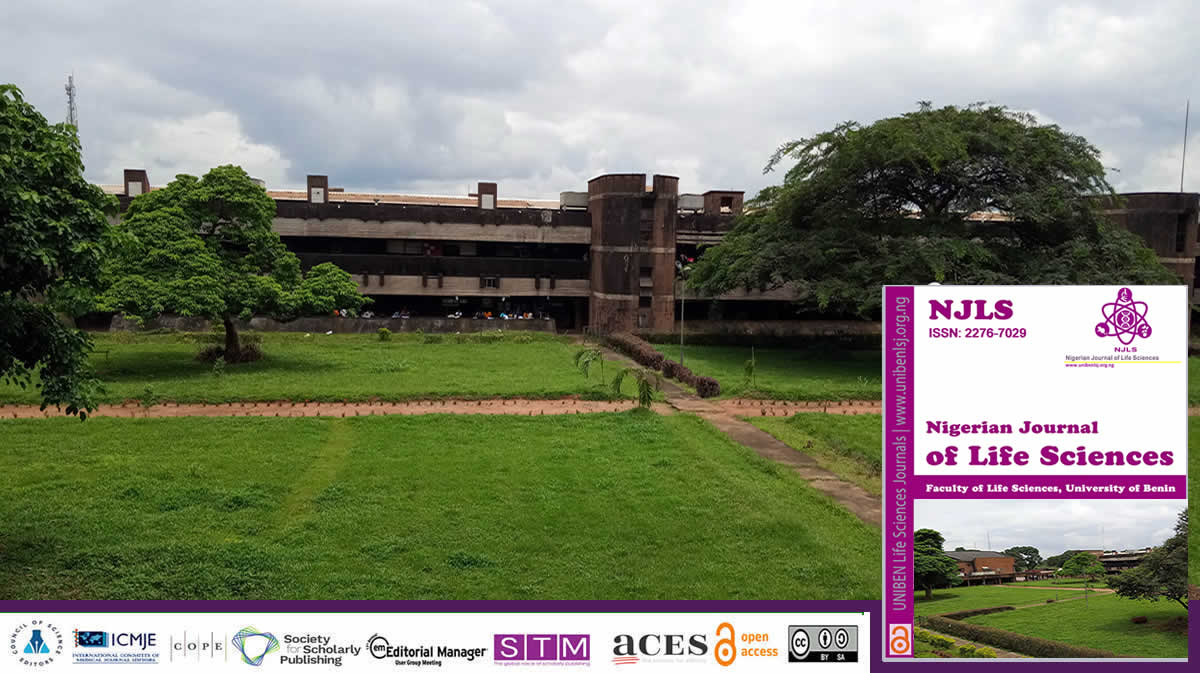
Welcome to the official web page of the UniBen Faculty of Life Sciences Journals (unibenlsj.org.ng) and web page of the Faculty of Life Sciences, University of Benin, Benin City, Nigeria. With a student population hovering around the 5,000 mark and a full compliment of both teaching and non-teaching staff, the Faculty ranks among the best and the strongest not only in the University of Benin, but also in the nation.
Historically, the Faculty was part of the original Faculty of Science until, 2005 when it was carved out as a new and independent Faculty of its own. The Faculty currently runs full time degree programmes in its seven Departments of Animal and Environmental Biology, Biochemistry, Environmental Management and Toxicology, Microbiology, Optometry, Plant Biology and Biotechnology and Science Laboratory Technology. Graduate programmes both at the Masters (MSc and M.Phil) and the PhD levels are available in the Departments of Animal and Environmental Biology, Biochemistry, Microbiology, Optometry and Plant Biology and Biotechnology. You may wish to visit the respective Departmental web pages or consult the Postgraduate School prospectus for available options.
For candidates seeking enrolment into degree or graduate programmes in Life Sciences, our Faculty remains one of the best choices across the nation and the West African sub-region. We are proud to be home to some of the most seasoned and internationally acclaimed researchers the nation has ever produced.
If you are already studying at our Faculty, I would be wasting no time in saying a big congratulations to you. Rightly so because you are one of the very few among so many who finally made it to our highly prestigious Faculty. And now that you are here, I urge you to devote yourself wholly to your studies and to follow your researches with keen interest. Let me assure you that you are in a very friendly environment where everyone is willing to contribute to your success story. From your Course Advisor to your Head of Department and to the Dean of the Faculty, it would take you no time to know that this is a closely knit family. I urge you therefore to seek help whenever it is necessary to do so. I encourage you to take advantage of our many research groups within the Faculty and to be part of our Student in Research Programme which is intended to provide the needed impetus to students who wish to pursue a career in scientific research. We have a large pool of seasoned researchers who are all too willing to mentor and guide you through the initial rough moments of your career in research.
From start to finish, the Faculty maintains an open door policy that puts at your disposal the services of every Faculty member and non-teaching staff. You are at liberty to seek direct audience with the Dean of the Faculty either in person or by sending a mail to tunde.imoobe@uniben.edu or deanoflifesciences@uniben.edu. You may also reach the Dean directly on +234 802 332 2605.
Thank you for visiting our official web page. I look forward to hearing from you soon.
Prof. T.O.T. Imoobe
Professor of Hydrobiology/Fish Biology & Dean, Faculty of Life Sciences






